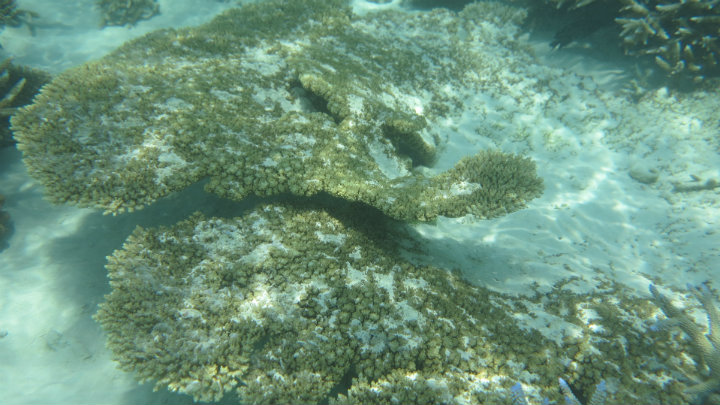Environmental NGO Ecocare has expressed concerns about the implementation of government regulations to protect all species of rays, citing a lack of enforcement mechanisms.
“While we welcome the government’s decision to protect rays, we have to say that simply ‘protecting’ it via a regulation is not sufficient,” said Spokesperson Maeed Mohamed Zahir.
“For example, turtles and sharks are also protected as per official records. However, the reality is that they are still hunted even today. Turtle and shark meat are widely available in some atolls as a delicacy. There is no point in announcing regulations if it cannot be enforced,” continued Zahir.
The Maldivian Manta Ray Project, the Manta Trust, and Save Our Seas Foundation released a statement on June 5 announcing that the Maldives government has officially added all species of ray to its protected species list.
“After the successful defeat of shark finning in recent years, the announcement of full legal protection for all ray species sets the Maldives as a leader country in marine conservation and marks another crucial step toward the global protection of these magnificent, yet vulnerable species,” said Maldivian Manta Ray Project Manager Niv Froman.
The Maldives has the largest recorded population of reef mantas, reports the Manta Ray Project, noting that the country has had a ban on the export of ray products since 1995.
“As an island nation, the Maldives long realised the importance of a healthy and balanced marine ecosystem. Hosting the world’s largest manta ray population, this country attracts thousands of tourists every year seeking the lifetime experience of swimming with these gentle giants,” said Froman.
Ecocare’s Zahir, however, suggested that the lack of an independent oversight body would further contribute to the ineffectiveness of species protection in the country.
He alleged that the sole monitoring body – the Environmental Protection Agency (EPA) – is a department reporting to the Ministry of Environment and hence has no say over government actions.
“The EPA has its hands tied when it comes to criticising government action. There isn’t even a committee in the parliament which is mandated to oversee environmental protection. The biggest problem we face is the lack of a strong enforcing mechanism”.
Maeed further argued that mechanisms currently exist “only in name” and prove to be ineffective in practice, noting that the police force’s Environmental Protection Unit (EPU) currently has a staff of just one.
The unit was formed last year to investigate and punish violations of laws relating to biodiversity and littering after similar complaints from civil society regarding implementation.
A police spokesperson – while not confirming the number of staff at the EPU – said that regardless of the number of staff in the unit, all police officers will provide support when necessary.
“We want to make it clear that we are not mandated to monitor whether persons follow the regulations when it comes to environmental protection. That is the job of solely the EPA and the Environment Ministry,” explained the spokesman.
“Our unit is only called into action when and if the EPA reports any criminal activity related to the environment,” he explained.
Environmental Consultant Moosa Athfal echoed Ecocare’s concerns, arguing that more feasible solutions might be considered.
“While protection of rays is a commendable act, the question is can the Environment Ministry monitor it? There are a countless number of rays in our seas. It would not be wrong to term the action as impossible, given the country’s current mechanisms,” said Athfal.
“If it can’t be implemented, then it is a pointless regulation. The best form of solution at present would be to provide relevant training to dive guides, who can then monitor such activity,” Athfal stated.
President’s Office Spokesperson Ibrahim Muaz Ali directed queries on the matter to the Environment Minsiter Thoriq Ibrahim, who was not responding to calls at the time of press.
The Environment Ministry’s Assistant Director Ilham Mohamed stated that she is unaware of a government decision to protect rays, while the EPA Director Ibrahim Naeem’s phone was not responding to calls at the time of publication.
Likes (2)Dislikes
(2)Dislikes (0)
(0) 
